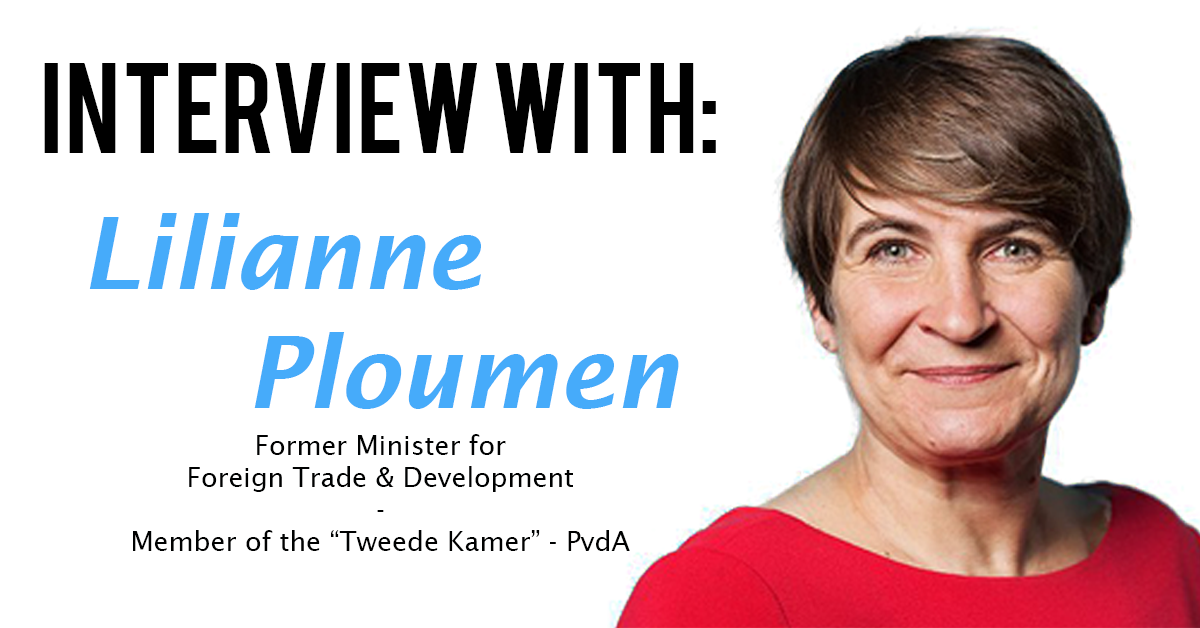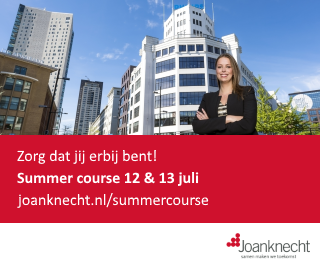Lilianne Ploumen is a Dutch politician and is currently a member of parliament on behalf of the PvdA. In the previous cabinet she was Minister for Foreign Trade and Development Aid. Early 2017, she founded the SheDecides fund; an organization that stands for worldwide safe abortions, sex education and maternity care.
You have studied Social History at the Erasmus University in Rotterdam. What do you remember most about that time and what did you do besides studying?
I especially remember the statistics lessons. I hated them at the time, but today I can say they have been the most useful classes with regards to my working life. Anyway, at the time I only had twelve hours of lectures per week. That’s why I had a lot of time to do other activities besides studying and it enabled me to work a lot in order to pay for my study. I have had many different jobs, such as in a bookstore, in a supermarket, and in a club house. It was a time of high unemployment, so when I could get a real job, I seized the opportunity and therefore graduated later.
When you started out in politics you joined the GroenLinks party, to later make the switch to the PvdA. What was your motive for doing this?
For many years I have been living in Amsterdam Nieuw-West. We have had a lot of problems with young people there. People felt uncomfortable in their own neighborhood. I felt that the PvdA was more engaged in regard to this topic and came up with realistic solutions. This improved the atmosphere in the neighborhood and young people went to school and work again. That is why I changed my political party.
Last year President Trump canceled the US financial aid that was used for family planning, sex education, contraception and for helping childbirths. The funds were cut by approximately 600 million dollars. In response to this, you established SheDecides in order to absorb the loss of funds. You recently received the Aletta Jacobs Prize for this. Which goals are you trying to achieve at the moment and what are your expectations for the time to come?
In the first year of SheDecides, 400 million euros were collected. It was brought together by organizations, governments and people who could spare some money for this important movement. It was an overwhelming success. Nonetheless, we are not there yet. Trump’s cutback amounts to around 600 million euros every year. This means that we’ll again need considerable sums of money to keep birth care and sexual education for women and girls up to standard. I therefore continue to commit myself to that.
“There are so many people who are in trouble, victims of war, violence and abuse. I cannot make a choice to change only one thing.”
Tensions in the world have risen considerably in recent months. Can you tell us what your view is on the current geopolitical affairs?
The troubled situation in Syria, the threatening language in North Korea, the difficult relationship with Russia. The world around us is uncertain and sometimes unsafe. That is not new in world history, but I still see an important change. Where we could always rely on our ally, the United States, we now see that a great deal of unpredictability comes from the president of that country. For Europe, this means that we are increasingly dependent on one another and have to work together to preserve peace and prosperity on our continent, which is not self-evident.
In the Netherlands we hear little about the civil war in Yemen. Do you think that the Netherlands has responsibilities in such humanitarian crises?
The current situation for the people of Yemen is terrible. The war, which has been going on for years, has already claimed many lives and destroyed many homes. The entire international community has a responsibility to bring this conflict to an end. The Netherlands played an important constructive role. Against the will of Saudi Arabia, the Netherlands has repeatedly argued for an independent investigation into the human rights violations in this war. In the end it was agreed upon. This was by no means self-evident. This is a first and important step to ensure justice in this war.
If you had the ability to solve one problem in the world, what would you change and why?
I understand this question very well, but I cannot answer it. There are so many people who are in trouble, victims of war, violence and abuse. I cannot make a choice to change only one thing.
Finally, what would you like to tell the current generation of students?
Have fun and make your own decisions. Think for yourself and do not rely too much on the advice of others.

















